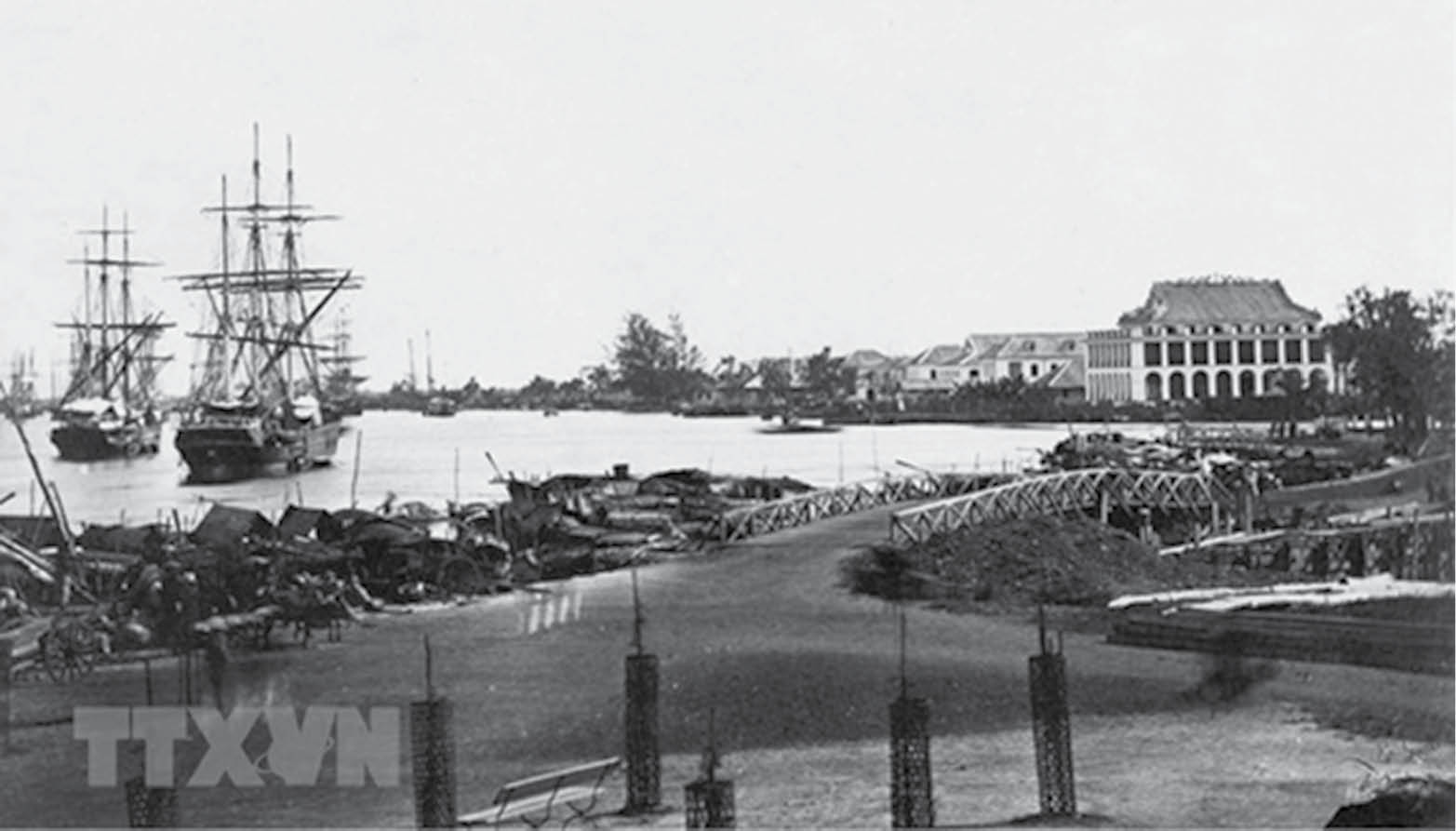 |
| On June 5, 1911, from Ben Nha Rong, Nguyen Tat Thanh left the Fatherland, starting his journey to find a way to liberate the nation and liberate the country. Source: Documents/VNA |
From around the world
On July 6, 1911, the ship docked at Marseille in the South of France. When he set foot in France, he was surprised because there were as many poor people as in Vietnam and also many social evils. He wondered: Why didn’t the French “civilize” their own people before “civilizing” us?
In early 1912, Nguyen Tat Thanh made a trip around Africa. At the end of 1912, Nguyen Tat Thanh stopped in the US. From 1913 to 1917, Nguyen Tat Thanh went to England. On his journey to find the way to liberate the nation, President Ho Chi Minh had to do many different jobs, patiently enduring all hardships: kitchen assistant on a ship, shoveling snow, waiter, gardener, photographer... He had to live a miserable life, but it was also from those jobs that helped him have the opportunity to contact and integrate into the lives of working people to understand clearly the nature of capitalism's tricks against working people in the country and the people of the colonies.
From 1917 to 1923, Nguyen Tat Thanh worked in France for the reason: To learn about the enemies of his people right in their homeland, where the words "Liberty - Equality - Fraternity" of the bourgeois revolution in 1789 were born. In early 1919, with the enthusiastic help of a number of progressive party members, he joined the French Socialist Party. Because according to him, it was the only organization in France that defended the struggle of the Vietnamese people, the only organization that pursued the ideal of "Liberty - Equality - Fraternity".
In June 1919, on behalf of a group of Vietnamese patriots in France, under the name Nguyen Ai Quoc, he sent the "Petition of the People of Annam" to Versailles. The petition consisted of 8 points asking the French government to return some freedoms and democracy to the Vietnamese people. Although the Petition was not accepted, it had a profound and strong impact, awakening the patriotic spirit of the Vietnamese people. At the same time, it was a new sign opening the struggle for basic national rights, the sacred right of self-determination of the nation.
After nearly 10 years of working, studying, and struggling with extraordinary determination and creative, scientific spirit, Nguyen Ai Quoc moved from patriotism to Leninism when he read Lenin's "First draft of theses on the national and colonial questions" published on the front page of the Nhan Dao Newspaper on July 16 and 17, 1920. From here, he found the basic direction and path of the national liberation revolutionary movement, including the Vietnamese revolution.
In the article “The Path That Led Me to Leninism” (April 1960), he wrote: “How moved, excited, enlightened, and confident Lenin’s thesis made me! I was so happy that I cried. Sitting alone in my room, I spoke loudly as if speaking before a large crowd: “My tormented and suffering compatriots! This is what we need, this is the path to our liberation.”
To the first Communist of Vietnam
In December 1920, Nguyen Ai Quoc attended the 18th National Congress of the French Socialist Party held in the city of Tours. At the Congress, he approved the establishment of the French Communist Party, becoming one of the founders of the French Communist Party and the first Communist of the Vietnamese people. This event marked an important turning point in his revolutionary life, from true patriotism to communism.
After the Tours Congress, the first Vietnamese Communist - Nguyen Ai Quoc began activities to unite, organize and lead the people of the colonies to fight against oppression, liberate the nation, liberate society and liberate people. He participated in founding the Colonial Union, published the newspaper The Poverty; wrote the work The Indictment of the French Colonial Regime... to denounce the enslavement of colonialism, awaken the indomitable consciousness of oppressed peoples.
Nguyen Ai Quoc's activities in the French Communist Party, especially in organizing and uniting colonial peoples to fight according to Lenin's ideology, were noticed and highly appreciated by the communist international.
In June 1923, with the help of the French Communist Party, Nguyen Ai Quoc left France for the Soviet Union to attend the International Peasants' Conference and the 5th Congress of the Communist International. At the 5th Congress of the Communist International, in the 16th session, on June 27, 1924, Nguyen Ai Quoc spoke and called: "We need to concentrate all our strength and energy on the colonial issue as well as other issues to implement Lenin's teachings in practice."
Practical activities in the Soviet Union encouraged Nguyen Ai Quoc to persevere in the struggle to protect and creatively develop Lenin's thoughts on the national and colonial issues. At the same time, he had the opportunity to examine and witness the achievements of the Soviet state and people, and to discuss the colonial issue and the colonial revolution in relation to the world proletarian revolutionary cause.
Living, studying and working at the Communist International alongside the outstanding leaders of the brother parties, being immersed in the reality of the homeland of the October Revolution and the country of the great Lenin, Nguyen Ai Quoc's theoretical level was improved, his political prestige was consolidated. From here, "He was prepared in all aspects to set out for the homeland, shouldering the important mission that history had chosen and entrusted: Preparing politically and ideologically to move towards establishing a Communist Party in Vietnam" [1]. |
[1] Ho Chi Minh National Academy of Politics (2018), Ho Chi Minh - Biography, National Political Publishing House Truth, Hanoi, p.161.
Source: https://huengaynay.vn/chinh-tri-xa-hoi/vuot-trung-duong-tim-con-duong-giai-phong-dan-toc-dung-dan-154336.html



![[Photo] Nhan Dan Newspaper launches “Fatherland in the Heart: The Concert Film”](https://vphoto.vietnam.vn/thumb/1200x675/vietnam/resource/IMAGE/2025/10/16/1760622132545_thiet-ke-chua-co-ten-36-png.webp)

![[Photo] General Secretary To Lam attends the 18th Hanoi Party Congress, term 2025-2030](https://vphoto.vietnam.vn/thumb/1200x675/vietnam/resource/IMAGE/2025/10/16/1760581023342_cover-0367-jpg.webp)


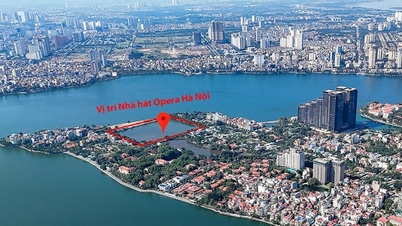



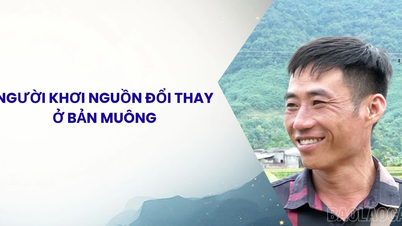


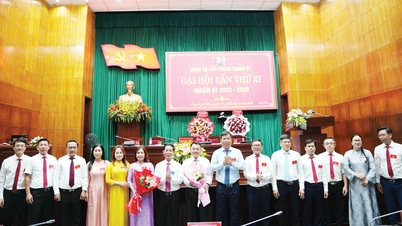










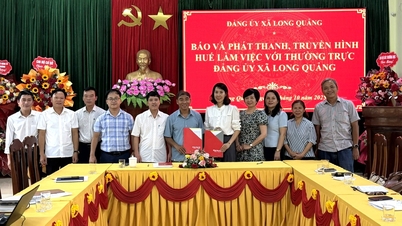
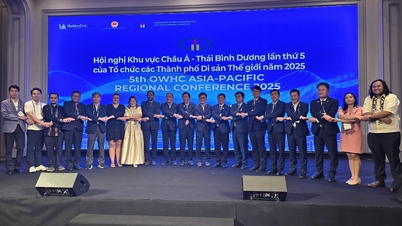









![[Video] TripAdvisor honors many famous attractions of Ninh Binh](https://vphoto.vietnam.vn/thumb/402x226/vietnam/resource/IMAGE/2025/10/16/1760574721908_vinh-danh-ninh-binh-7368-jpg.webp)




























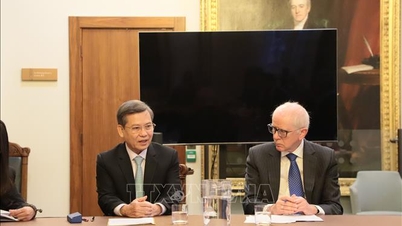
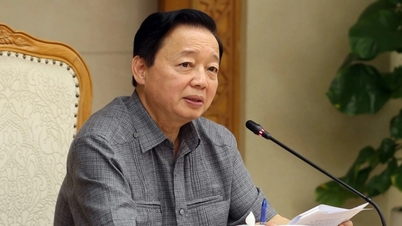







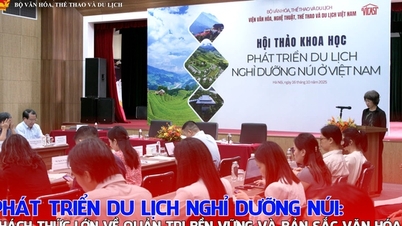
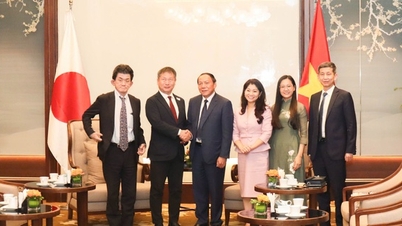
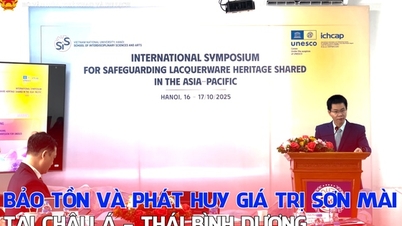

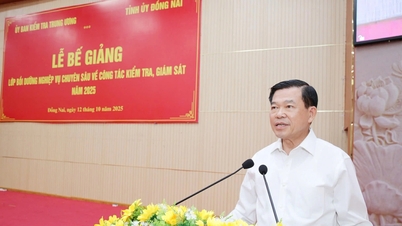



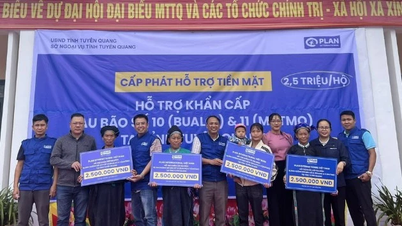

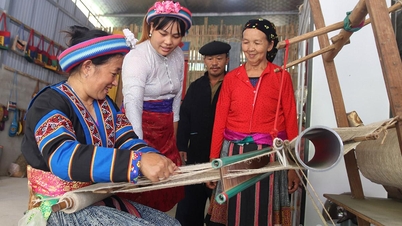

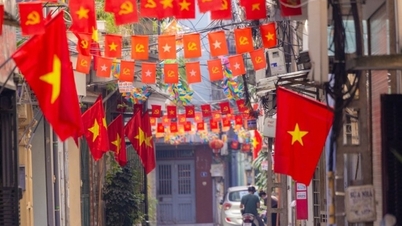

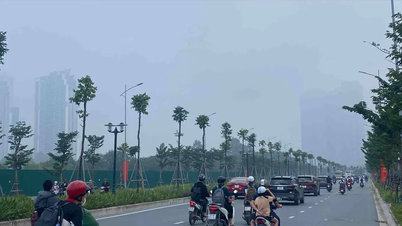













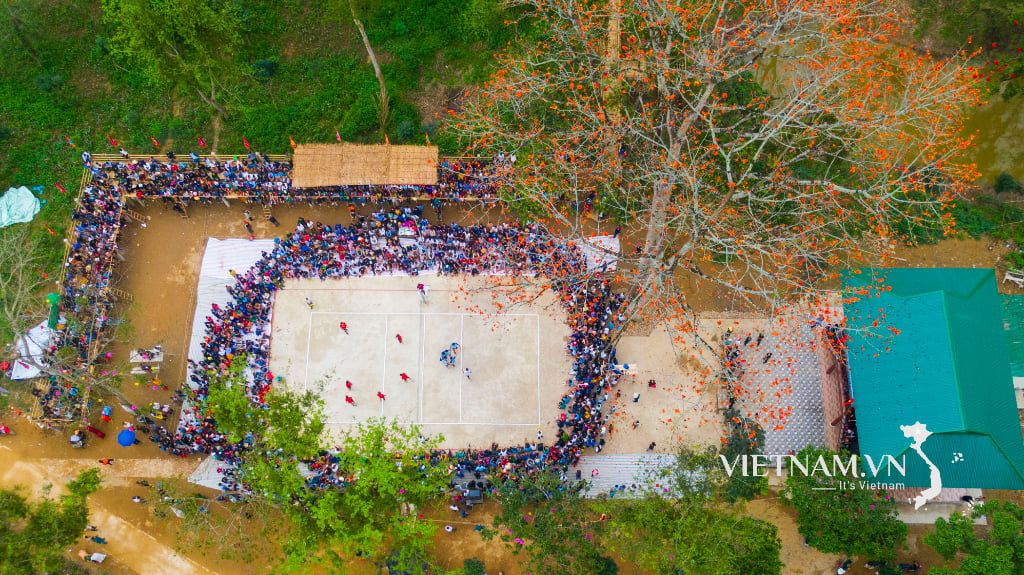

Comment (0)